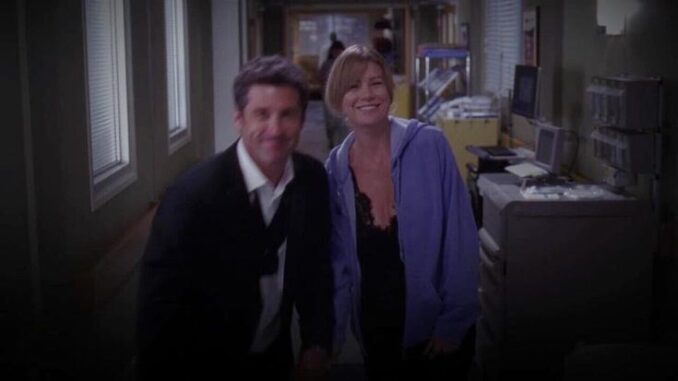
The white coat, pressed and starched, often conceals more than just a physician’s everyday attire. It serves as a kind of professional armor, designed to project an image of unwavering competence, unflappable calm, and absolute control. Doctors, in our collective consciousness, are the stoic heroes, the rational minds, the steady hands in the tempest of illness and despair. They are expected to deliver pronouncements with the precision of a surgeon’s scalpel and the compassion of a saint. They are, in essence, always supposed to know their lines.
But what happens when the script vanishes? What transpires when the cool, collected demeanor shatters, revealing the raw, fragile humanity beneath? When doctors forget their lines and lose their cool, the effect can be jarring, illuminating both the immense pressures of their profession and the profound vulnerability of those who seek their aid.
Consider Dr. Aris, an emergency physician with a decade of experience, a man who had seen humanity at its most fractured. One sweltering night, the ER was a war zone: a multi-car pile-up, a code blue in triage, and a belligerent patient screaming obscenities from cubicle three. Dr. Aris, stretched thin, bone-tired, walked into cubicle four, where an elderly woman with advanced dementia was presenting with a vague complaint. Her son, agitated and exhausted, was peppering him with questions, second-guessing every pause. Dr. Aris had spent the last two hours resuscitating a child who ultimately didn’t make it. He hadn't eaten, hadn't sat, hadn't even truly processed the grief.
"Doctor," the son insisted, "are you sure it's not her heart? Her sister had heart issues!"
Dr. Aris, usually a master of empathetic deflection, snapped. His voice, normally a soothing baritone, rose, brittle with fatigue and suppressed sorrow. "Sir, I just told you, her EKG is normal. Her vitals are stable. We need to rule out a UTI, which takes time. I have a critically ill patient who needs my attention more urgently than a hypothetical cardiac event!" He didn't yell, not precisely, but the words were clipped, the tone dismissive, the usual "I understand your concern" utterly absent. He had forgotten his lines – the script of reassurance, patience, and professional detachment.
The son visibly recoiled, his face falling from agitated to hurt. The old woman, sensing the shift in energy, whimpered. In that moment, Dr. Aris wasn't the unwavering pillar of calm. He was a human being at breaking point, his professional facade cracking under the relentless pressure, revealing the frustration, the exhaustion, and perhaps even the lingering despair of the earlier tragedy.
Then there’s the loss of cool, a deeper, more visceral breach of composure. This often manifests not as a sharp word, but as a visible collapse of internal control. Imagine a seasoned surgeon, Dr. Lena, halfway through a complex procedure, when an unexpected complication arises – a massive bleed, or a critical vessel proving impossible to clamp. The operating room, usually a symphony of controlled movements and quiet commands, suddenly vibrates with an unspoken tension. Dr. Lena, known for her ice-cold nerve, slams a surgical instrument down on the sterile tray, a sharp clank! echoing through the room. Her brow furrows, a muscle twitches in her jaw. She doesn't scream, she doesn't cry, but her breathing becomes shallow, her hands momentarily still, gripping the edge of the table. A quiet, guttural groan escapes her lips, almost imperceptible.
In that fraction of a second, Dr. Lena has lost her cool. It's not anger at a person, but raw frustration at the limitations of the body, the betrayal of an unforeseen anomaly, the looming specter of failure. It’s the profound weight of a life in her hands, momentarily overwhelming the practiced detachment. For the surgical team witnessing it, the moment is chilling – a reminder that even the most skilled among them are grappling with the awesome, terrifying responsibility of their work.
When doctors forget their lines or lose their cool, the impact on the patient can be profound. The sick, by definition, are vulnerable. They come to physicians seeking not just diagnosis and treatment, but also solace, clarity, and reassurance. A sharp word, a visible sign of distress, a flicker of exasperation in the doctor’s eyes, can shake the fragile trust that underpins the healing relationship. It can plant seeds of doubt, amplify anxieties, and leave patients feeling unheard, dismissed, or worse, abandoned by the very person tasked with their care. The idealized image of the unflappable healer shatters, replaced by the unsettling reality of a human being grappling with overwhelming demands.
Yet, these moments, however unsettling, also serve as stark reminders of the immense and often superhuman burden placed upon medical professionals. They work in a crucible of suffering, facing death, disease, and despair daily. They navigate complex ethical dilemmas, bureaucratic frustrations, and personal sacrifices. To expect them to be infallible emotional automatons is to deny their fundamental humanity.
The white coat is a powerful shield, but not an impenetrable one. When it cracks, when doctors forget their lines and lose their cool, it’s a difficult, uncomfortable unveiling. It's a testament to the immense, often invisible pressures they withstand, and a poignant reminder that even our healers, our pillars of calm, are fundamentally human, susceptible to the same vulnerabilities that afflict us all. Their recovery, their ability to regain composure and find their lines again, often happens in the next breath, the next moment, a testament not just to their training, but to their sheer resilience.